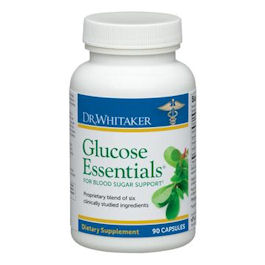| It’s true that dietary supplements provide nutritional benefits to people with almost about every condition – and even to people who have nothing wrong! After all, it makes sense that supplements would help our bodies – they’re simply another form of nutrients that our bodies need to stay healthy. Given the way that so many of the foods we eat are processed, boiled, vacuum-packed, and preserved before we eat them, it shouldn’t be a surprise that many of the nutrients that were in the foods originally have lost some of their potency.
Diabetics have a particularly difficult life ahead of them. They have a disease that has no known cure (at least not yet), marked by potentially dangerous whipsawing of their blood sugar levels, because their bodies either resist insulin or don’t produce enough of it. Depending on the particular type, diabetes is either a childhood condition that is often not diagnosed until early adulthood, or is the result of obesity and a sedentary lifestyle. As of January 2011, there are over 20 million Americans with confirmed diabetes – and over 40 million who are on the verge of Type 2 diabetes (the type caused primarily by weight gain and lifestyle).
If you have diabetes, although now there may not be a supplement that will cure all of your symptoms, there are supplements that can help improve your quality of life and make your blood sugar easier to manage – which is really the key to managing the condition.
Alpha-lipoic acid, or ALA, is an antioxidant that may help increase sensitivity to insulin and improve the way you metabolize glucose. It can reduce blood sugar more than is necessary, though, so if you start this supplement, you’ll want to keep a close eye on your sugar levels. ALA appears in potatoes, spinach, liver and broccoli, and is also available as a supplement tablet or capsule.
Omega-3 fatty acids help the body in a number of ways, including moving nutrients and wastes in and out of cells, improving digestion, and helping blood clot, among others. For diabetics, omega-3 fatty acids may help with managing glucose levels and have a proven link with lowering triglyceride levels – a good step for diabetics.
Polyphenols are the antioxidants that appear in dark chocolate and different varieties of tea. ECGC, one of the polyphenols in green tea, may increase insulin sensitivity and the ability to control glucose levels.
Vanadium can help your body respond more quickly to insulin. For those diabetics whose glucose levels do not respond to insulin, this can make life a lot more pleasant. Chromium can help you lose weight (which helps Type 2 patients, especially) and help you manage levels of blood glucose. You can get chromium from eating whole grain products, meats, and some fruits and vegetables.
Garlic may also help the body decrease glucose levels, and CoQ10 (coenzyme Q10) may operate similarly; more research is needed to verify those results for diabetics, though.
Also, many diabetics have a magnesium deficiency. Magnesium supplements may help improve your body’s insulin secretion and in dealing with many of the complications associated with diabetes. More research is needed in this area, but there are no known risks associated with magnesium supplements, as long as you stay within recommended levels.
Is there a risk involved with dietary supplements? You’ll want to check with your doctor to see if any of your medications will interact poorly with the supplements that you choose. Other than that, what you’re doing with supplements is adding nutrients to your regimen. Also, you don’t want to stop taking your diabetes medication and rely on supplements alone – they are there to help improve your current regimen – not replace it. |
